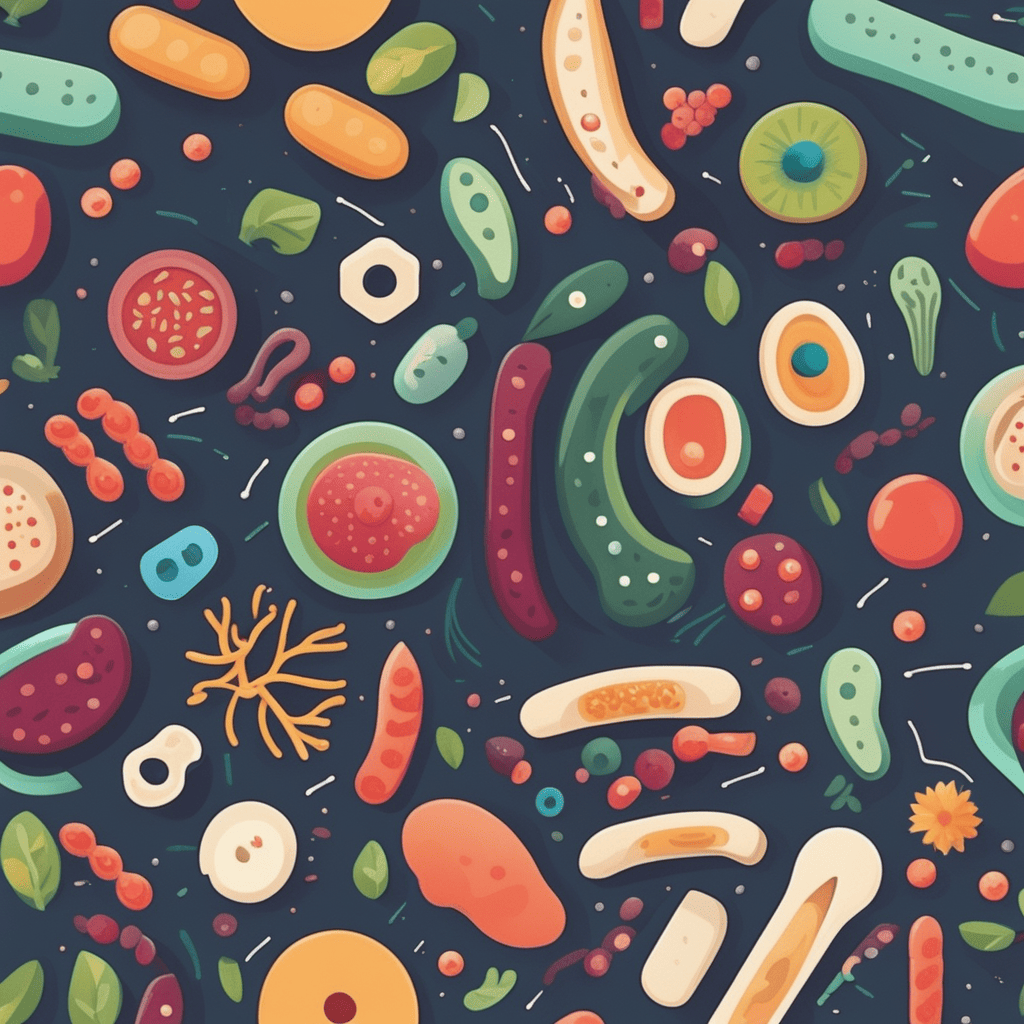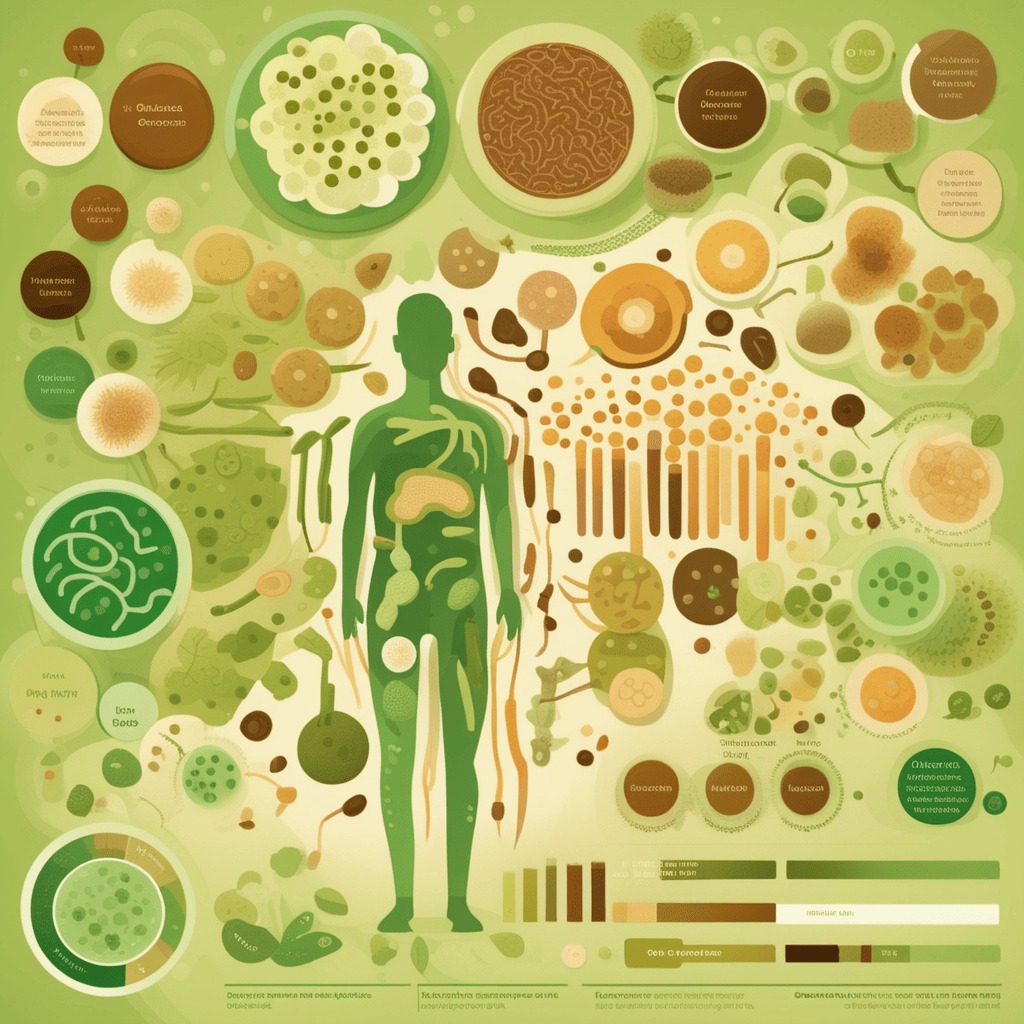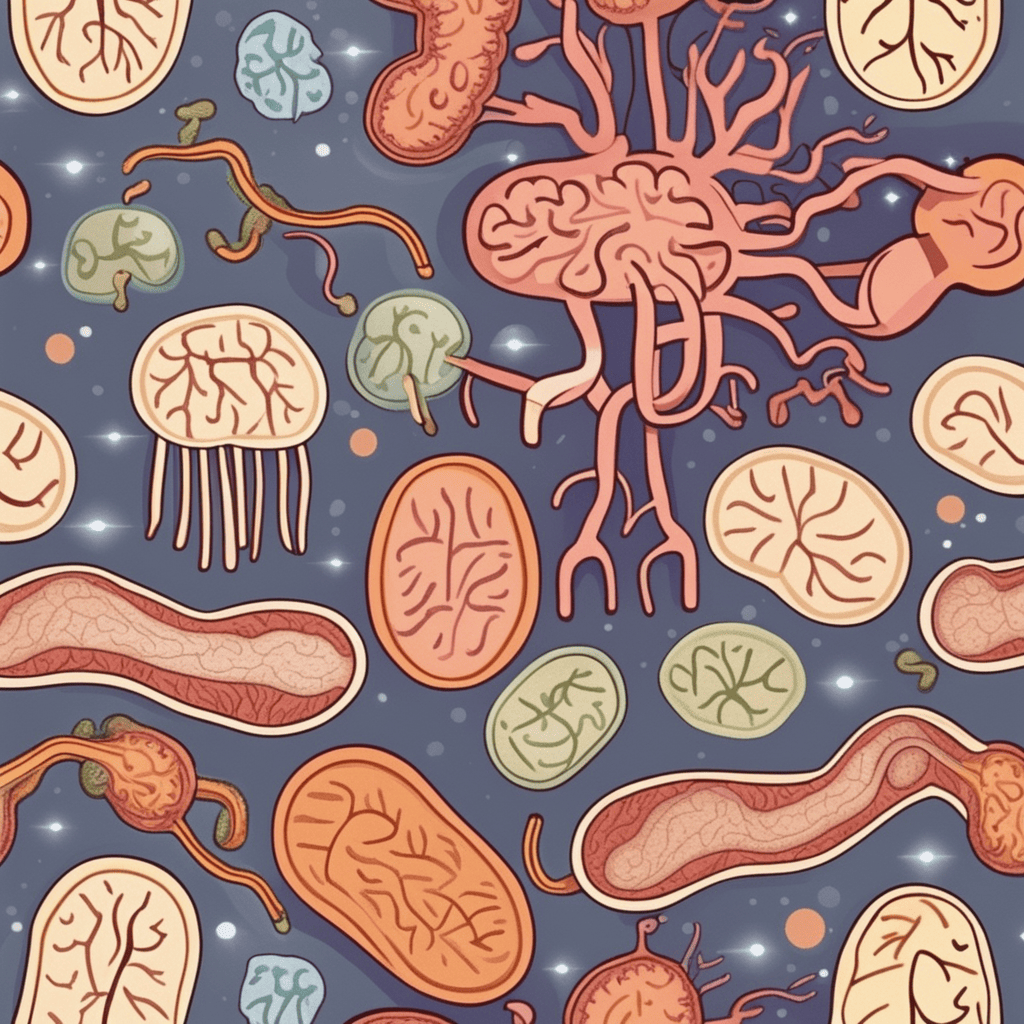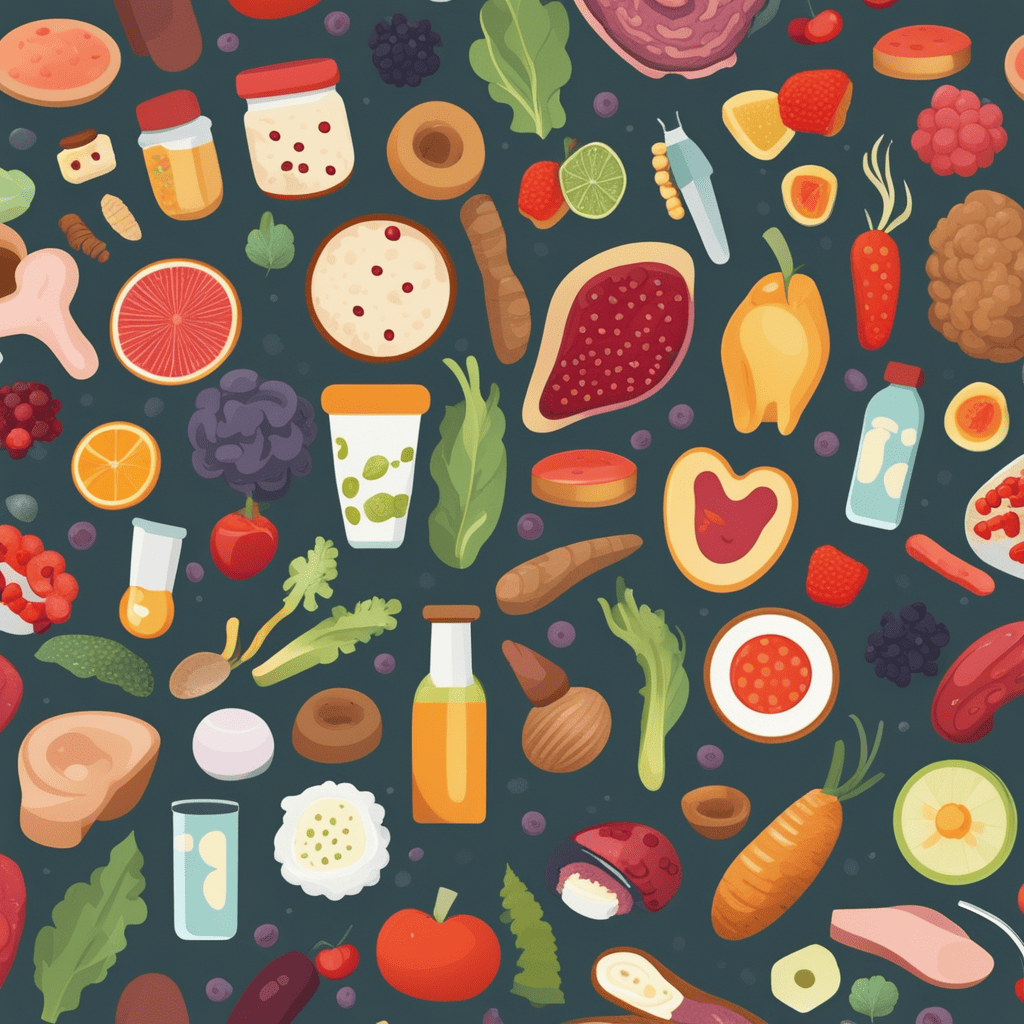
Venture into the fascinating world of gut health, where we’ll uncover the extraordinary link between our well-being and this remarkable system. Our gut, often referred to as the “second brain,” is a vibrant ecosystem bustling with countless microorganisms that play a significant role in shaping our health. From digesting our food to influencing our immunity and even impacting our emotions, the gut is a key player in our daily lives. In this blog, we’ll embark on an intriguing journey to explore the secrets of our gut and discover how its well-being can lead to a happier and healthier life. Let’s dive in.
Understanding the Gut Microbiome
Imagine your gut as a bustling city, bustling with trillions of friendly bacteria, fungi, viruses, and other microbes working together. This vibrant community forms our gut microbiome, and its diversity and balance are essential for smooth digestion, nutrient absorption, and producing essential vitamins.
Research has shown that a diverse gut microbiome is associated with better health outcomes. A variety of beneficial bacteria helps break down complex foods, release nutrients, and prevent harmful pathogens from gaining a foothold. Conversely, an imbalance in gut microbes, known as dysbiosis, has been linked to various health issues, such as gastrointestinal disorders, inflammation, and even mental health problems.
To foster a thriving gut microbiome, consider incorporating a wide range of foods into your diet. Fiber-rich fruits and vegetables, whole grains, and fermented foods like yogurt and kimchi are excellent choices. Additionally, reducing the intake of highly processed and sugary foods can help maintain a balanced gut environment.


Gut Health and Immunity
Believe it or not, our gut plays a superhero role in protecting us from harmful invaders. Around 70% of our immune system resides in the gut, and beneficial gut bacteria help train our immune system to fight off unwanted intruders effectively.
When the gut microbiome is in harmony, it acts as a barrier, preventing harmful pathogens from crossing the intestinal lining and entering our bloodstream. Furthermore, beneficial gut bacteria produce compounds that support immune function and even communicate with immune cells to enhance their response to infections.
To support a robust immune system through gut health, consider including immune-boosting foods in your diet. Foods rich in vitamin C, zinc, and antioxidants, such as citrus fruits, berries, nuts, and seeds, can help fortify your immune system. Additionally, prioritize a balanced and diverse diet that nourishes your gut microbiome, enabling it to work harmoniously with your immune system.


Gut-Brain Connection
It turns out that our gut and brain are best friends who are constantly chatting through a network of nerves, hormones, and messengers. This connection, known as the gut-brain axis, means that our gut health can influence our mood, anxiety levels, and how we cope with stress.
Have you ever felt butterflies in your stomach when nervous or experienced a “gut feeling” about something? These experiences are the result of the strong communication between our gut and brain. The gut produces neurotransmitters like serotonin, often called the “happy hormone,” which influences our mood and emotions. In fact, about 95% of the body’s serotonin is found in the gut!
Maintaining a healthy gut can have a positive impact on our mental well-being. Studies have suggested that probiotics and prebiotics, which promote a balanced gut microbiome, may help alleviate symptoms of anxiety and depression. Additionally, a healthy gut can better regulate stress responses, helping us cope with life’s challenges more effectively.
To nurture your gut-brain connection, focus on stress-reducing activities like meditation, yoga, or spending time in nature. Adequate sleep is also essential for gut and brain health, as it allows the body to repair and rejuvenate.


The Role of Diet in Gut Health
We are what we eat, and so is our gut! A diet rich in fiber, prebiotics, and probiotics can create a nurturing environment for those friendly gut microbes. Conversely, diets high in processed foods and sugars can throw our gut balance off-kilter.
Fiber acts as a gut health superhero. It serves as food for beneficial gut bacteria, promoting their growth and activity. Whole grains, fruits, vegetables, and legumes are excellent sources of fiber that can help maintain a healthy gut microbiome.
Prebiotics, on the other hand, are compounds found in certain foods that nourish beneficial gut bacteria. Garlic, onions, leeks, and bananas are among the prebiotic-rich foods you can include in your diet.
Probiotics, often found in fermented foods, are live bacteria that can add to the diversity of the gut microbiome. Yogurt, kefir, sauerkraut, and kimchi are tasty options to introduce probiotics to your diet.
On the flip side, highly processed foods, sugary treats, and excessive alcohol consumption can negatively impact gut health. These foods can promote the growth of harmful bacteria while reducing the diversity of beneficial ones. Moderating the intake of such foods can help maintain a healthy gut environment.


Lifestyle Factors and Gut Health
Our lifestyle choices can significantly impact our gut health. Chronic stress, lack of sleep, and a sedentary lifestyle can disrupt the harmony of our gut microbiome. On the bright side, practicing stress-reducing activities, getting enough sleep, and staying active can be gut-friendly practices.
Chronic stress can negatively affect gut health by altering the gut microbiome and weakening the gut lining. This disruption may lead to gastrointestinal issues like irritable bowel syndrome (IBS) and contribute to inflammation.
To support gut health, prioritize stress management techniques in your daily routine. Meditation, deep breathing exercises, spending time in nature, and engaging in hobbies you enjoy can all help reduce stress levels.
Additionally, adequate sleep is crucial for maintaining a healthy gut. During deep sleep, the body repairs and regenerates, including the gut lining. Aim for seven to nine hours of quality sleep each night to support your gut and overall well-being.
Gut health is influenced by regular physical activity as well. Exercise can positively influence the diversity of gut microbes and promote overall digestive health. Regular moderate-intensity activities like walking, cycling, or yoga can be beneficial.
Healing and Maintaining Gut Health
Fear not if your gut health needs a little TLC! (Tender Loving Care). Embracing fermented foods like yogurt and sauerkraut introduces beneficial probiotics into our system. Loading up on fiber-packed fruits, veggies, and whole grains feeds those friendly gut microbes. Staying hydrated, managing stress, and avoiding unnecessary antibiotics all contribute to a happy and healthy gut.
Here are some gut-healthy tips to keep in mind:
– Choose Fiber-Rich Foods: Incorporate a variety of fruits, vegetables, whole grains, and legumes into your diet to provide nourishment to your gut microbes.
– Include Fermented Foods: Yogurt, kefir, sauerkraut, and kimchi are delicious sources of probiotics that can support a thriving gut microbiome.
– Stay Hydrated: Drinking enough water is essential for overall health, including proper digestion and gut function.
– Manage Stress: Find stress-reducing activities that work for you, such as meditation, yoga, or spending time with loved ones.
– Limit Antibiotic Use: While antibiotics are necessary for treating certain infections, unnecessary use can disrupt the balance of gut bacteria. Always adhere to the prescribed antibiotics as directed by your healthcare provider.
As we dive into the world of gut health, we uncover ways to improve our overall well-being. By caring for our gut and making mindful choices, we can lead happier and healthier lives. Let’s take this journey together and embrace the link between gut health and our happiness!
